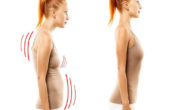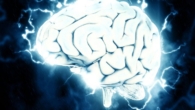
How to recognize the first symptoms of dementia: signs that should not be ignored
0
Even at the age of 35, a person may face a situation when he forgets the name of the neighbor's dog or does not remember the name of his favorite movie. Although at first glance it seems that memory is beginning to deteriorate, there is absolutely nothing to worry about.
As explained by neuropsychologist Elise Caccappolo, starting at the age of 30, our brain gradually decreases in size, but it happens very slowly . “As a result, the speed of processing information and searching for it in the depths of memory can decrease,” the expert added.
However, sometimes the changes go beyond the normal age-related decline in cognitive functions. In this case, it may already be about dementia.
“In order to diagnose the disease, the deterioration of the brain must be observed in more than one cognitive area,” Caccappolo said.
The main principle that will help distinguish normal forgetfulness from a dangerous disease is the frequency of symptoms. In total, there are several key signs.
- Inability to remember information that has just been received.Everyone forgets little things from time to time, but with the development of dementia, problems arise with retaining new information. And to such an extent that it affects everyday life. This can manifest in the same question, inability to remember details of a TV show you just watched, difficulty learning new tasks.
- Problems managing finances. This includes being able to pay bills. , check savings and think abstractly. People with dementia have problems with math and miscalculate costs, Caccappolo said.
- The ability to get lost in familiar places. Memory loss, as well as visual and spatial difficulties, can lead to disorientation, making it easy for people with dementia to get lost, even when walking or driving to places they have visited hundreds of times.< /li>
- Confusion about time and day.In this case, a person starts to eat breakfast, but then realizes that it is time for dinner, or cannot remember the day of the week without looking at the calendar. Patients with more severe dementia may get up in the middle of the night and get dressed. It may also become increasingly difficult to tell what time of year it is, or even the year.
- Visual-spatial problems. Atrophy of the part of the brain that processes visual information can lead to visual problems perception, provoke falls, problems with safe driving and with judging distances and colors.
- Inability to remember words. In addition, people with dementia forget names and cannot remember new information, they may not be able to find a word for a familiar object, for example, a clock or a refrigerator; they may also stop mid-sentence unable to continue a conversation.
- Losing things constantly. When a person without dementia loses their keys, they are able to remember where they kept hold them for the last time, or think about where they might be. But for a person with dementia, such deductive steps are impossible, which will lead to disappointment and the suspicion that the objects were “stolen”.









Leave a Reply